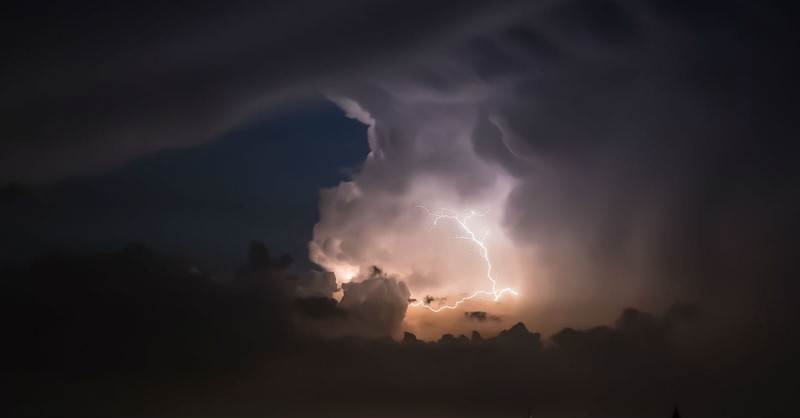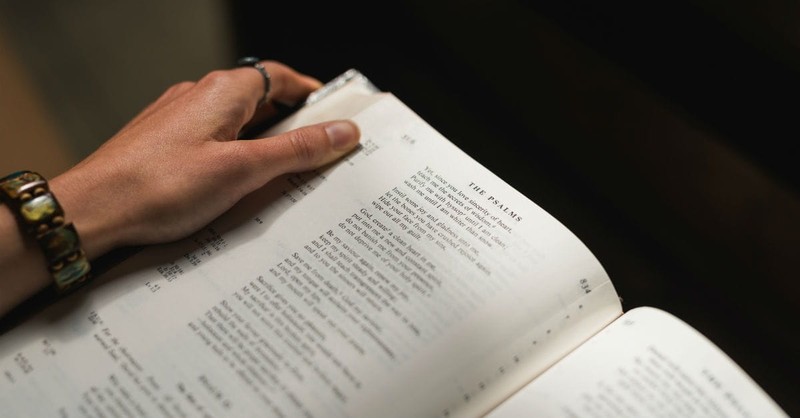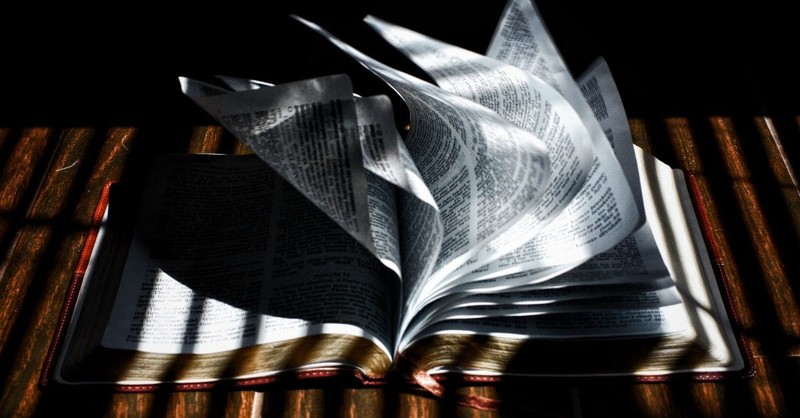
The prophets had a rough gig. While they had privilege of sharing the amazing news of redemption and restoration, it usually wasn’t until after they laid down the coming judgment of God. Their calls for repentance didn’t usually fall onto listening ears or teachable hearts, and bad marriages, terrible nightmares, and much weeping often plagued them. They predicted and warned about the Assyrian takeover, the destruction of their own people brought forth by idolatry, and Babylonian captivity. These minor prophets undoubtedly played a major role in the history of Israel. Most incredibly, they even got to tell of the coming king.
Photo Credit: Unsplash/Alexandru Tudorache

Hosea
Who he was: Hosea’s covenantal marriage is torn by infidelity, but God experiences unfaithfulness from his people daily. While many of the minor prophets experienced difficult calls on their lives, Hosea lived out a metaphor in which he was called to marry Gomer, a prostitute who would consistently return to her promiscuous ways. Hosea was active as a prophet during the mid to late 700s BC, close to the times of both Isaiah and Micah, and “during the reigns of Uzziah, Jotham, Ahaz and Hezekiah, kings of Judah, and during the reign of Jeroboam son of Jehoash king of Israel.”
Why Hosea is important: Not only can a follower of Christ relate with this book when they know their own heart’s propensity to wander, but it makes the judgment and restoration of God feel more personal. The parallel of Israel's relationship with God and Hosea’s marriage to Gomer connects the reader with the emotions of God; not just in his righteous judgment, but also in the betrayal he felt from the people he calls his own.
Verse to remember: “For I desire mercy, not sacrifice, and acknowledgment of God rather than burnt offerings.” Hosea 6:6
Photo Credit: Thinkstock

Joel
Who he was: Although little is certain about this prophet, the focus Joel had on Jerusalem and the temple’s functionaries may indicate he lived in the Judean capitol, and ministered there as a prophet. Joel was clearly a student of the prophesies and history of God’s people, for in his three-chapter book you can find quotes from multiple other prophets.
Why Joel is important: Catastrophe had just struck the people of Judah. A locust infestation had decimated the hearts and possessions of the people, and Joel’s message warned that there were more invasions still to come. Joel pleads with the people that they would rend their hearts and not their garments and show true repentance. Important terminology like The Day of the Lord, and the foretelling of the Holy Spirit being given to believers are also found in this short three-chapter book.
Verse to remember: “And afterward, I will pour out my Spirit on all people. Your sons and daughters will prophesy, your old men will dream dreams, your young men will see visions.”Joel 2:28
Photo Credit: Unsplash/Riccardo Chiarini

Amos
Who he was: A fig-tree farmer, a shepherd, and a man with resolute courage, Amos stood against those who would not hear from him due to his humble beginnings. Amos knew he must deliver the message that God had placed within him, and he left Judah to travel to Israel at a time when the nation was stable but being ruled by the corruptJeroboam the Second.
Why Amos is important: Amos begins his prophecies in fascinating order. He starts with listing the sins and heralding the devastation that will be directed at Israel’s enemies. All those surrounding Israel will be judged for their crimes against humanity, but then Amos turns his attention to Israel, who does not escape the perilous prophecies. Israel will be judged for their crimes against God, who roars like a lion from Zion, and much of that judgment will come from Egypt and Assyria.
Some of the prophets have a thread of redemption woven through all their poetic predictions, but Amos saves his hope for the very end. In fact, he waits for the very last paragraph. He delivers the message that the people must stop the insanity of idolatry; Israel must repent. Only then will God plant Israel in their own land, “never to be uprooted again.”
Verse to remember:“In that day I will restore David’s fallen shelter — I will repair its broken walls and restore its ruins — and will rebuild it as it used to be...” Amos 9:11
Photo Credit: Unsplash

Obadiah
Who he was: Obadiah was a common name, so this book cannot be assigned with certainty to any of the Obadiah’s mentioned in the Old Testament, and the date is up for debate as well. Verses 11-14 make many Study Bibles suggest that this book was most likely written around the same time that Jeremiah was on the scene due to the similarities in their prophecies.
Why Obadiah is important: Paul Carter suggests, “The Book of Obadiah has been preserved because it reminds all people everywhere that how they treat his covenant people will be taken as an indicator of faith.” While the judgment is pronounced against Edom (descendants of Esau), the world-wide scope of this book reminds us that while no nation will escape the judgment of God, there is also an invitation to repentance and redemption for all as well.
Verse to remember: “The day of the LORD is near for all nations. As you have done, it will be done to you; your deeds will return upon your own head.” Obadiah 1:15
Photo Credit: Unsplash

Jonah
Who he was: Jonah is one of, if not the most, well known minor prophet. He was active during the eighth century BC, and had a personal distaste for the people of Nineveh, the capital of Assyria. His tale of being swallowed by a giant sea creature is probably being told in a Sunday school class near you this weekend.
Why Jonah is important: Jonah tries to run from his call, but this book shows God’s willingness to let people experience drastic detours to get them back on the right path. It also connects with the hearts of people that question God and why he does things, but guides the reader back to knowing that even if you do not agree God’s will reigns supreme. He will show mercy to those who oppose him if they turn from their ways.
Verse to remember: “To the roots of the mountains I sank down; the earth beneath barred me in forever. But you, LORD my God, brought my life up from the pit.” Jonah 2:6
Photo Credit: Unsplash

Micah
Who he was: Micah from Moresheth prophesied during the times of Isaiah, Hosea, and Amos in the late eighth century. His message was delivered to Israel and Judah with through anguished tears. “Because of this I will weep and wail; I will go about barefoot and naked. I will howl like a jackal and moan like an owl”. Micah 1:8
Why Micah is important: Micah pulled no punches when it came to the social constructs and the leaders of Judah and Israel. He denounced the rulers, the prophets, and the oppressors of God’s people. Like many other prophetic books Micah warns of judgment and offers the hope of redemption, but Micah 6:8 is quoted often to remind God’s people that the principles governing His kingdom are not driven by economic pressure but the motivations of the heart.
Verse to remember: “He has shown you, O mortal, what is good. And what does the LORD require of you? To act justly and to love mercy and to walk humbly with your God.” Micah 6:8
Photo Credit: Unsplash/Josh Applegate

Nahum
Who he was: Nahum comes approximately 150 years after Jonah to pronounce Nineveh under judgment even while Assyria flaunted its power and wealth. Nahum carries the weight of this message to the unrepentant Assyrians: “’I am against you,’ declares the LORD Almighty. ‘I will burn up your chariots in smoke, and the sword will devour your young lions. I will leave you no prey on the earth. The voices of your messengers will no longer be heard.’” Nahum 2:13
Why Nahum is important: Nahum’s prophetic works begin by focusing on the awesomeness of God. Reminders of his glory, mercy, and judgment are highlighted in a poem before Nahum begins to layout the devastation in store for the Assyrian capital, Nineveh. “Woe to the city of blood, full of lies, full of plunder, never without victims!” Nahum 3:1 The encouragement found here is that though God is slow to anger he will not stand by when a pattern of malicious destruction is present.
Verse to remember: “The LORD is good, a refuge in times of trouble. He cares for those who trust in him...” Nahum 1:7
Photo Credit: Unsplash

Habakkuk
Who he was: What is most fascinating about Habakkuk is that he doesn’t arrive announcing judgment on a nation or city, but lamenting over the horrors he sees at work in Israel, and the terrors God is allowing Babylon to carry out. Habakkuk cries out to God because of every terror he witnesses, and the God of Job answers, again. The historical references in his book seem to indicate it was written mid 600 B.C.
Why Habakkuk is important: This book opens a window to the heart of a man who both loved and questioned God. Habakkuk had faith in God, but the honesty of his inquiring connects with the doubting heart struggling to hold to faith in the face of pain. “How long, LORD, must I call for help, but you do not listen? Or cry out to you, “Violence!” but you do not save?” Habakkuk 1:2 This book is edifying to the body of Christ because of the candid reflection that ultimately lands in the place of trust.
Verse to remember: “LORD, I have heard of your fame; I stand in awe of your deeds, LORD. Repeat them in our day, in our time make them known; in wrath remember mercy.” Habakkuk 3:2
Photo Credit: Unsplash

Zephaniah
Who he was: Zephaniah was faithful to Judah and Israel and served during King Josiah’s attempts to bring repentance. Year after year, Zephaniah tried to warn them of the consequences their persistent idol worship would bring them.
Why Zephaniah is important: He uses devastating imagery to show the death their apostasy will bring upon their nation, but the judgment is designed to bring purity and unity. We see in Zephaniah 3:9 the intention, “’Then I will purify the lips of the peoples, that all of them may call on the name of the LORD and serve him shoulder to shoulder.’” When we remember that there will be rejoicing on the other side of correction, it can help us choose to be faithful even in the most trying times.
Verse to remember: “The LORD your God is with you, the Mighty Warrior who saves. He will take great delight in you; in his love he will no longer rebuke you, but will rejoice over you with singing.” Zephaniah 3:17
Photo Credit: Unsplash

Haggai
Who he was: Haggai was mentioned in the book of Ezra,along with Zechariah, as those who spoke for God. Haggai is present during the rebuilding of the temple after Babylon was conquered and Cyrus allowed the Jews to return to the Promised Land.
Why Haggai is important: This book reminds us where our priorities should be. It is easy after difficult times to stay in something of a survival mode, but God reminds the returning Israelite exiles that recovering from tragedy takes work, and healing work takes courage. He says, “‘Who of you is left who saw this house in its former glory? How does it look to you now? Does it not seem to you like nothing? But now be strong, Zerubbabel,’ declares the LORD. ‘Be strong, Joshua son of Jozadak, the high priest. Be strong, all you people of the land,’ declares the LORD, ‘and work. For I am with you,’ declares the LORD Almighty.” Haggai 2:3-4
Verse to remember: “Now this is what the LORD Almighty says: “Give careful thought to your ways.” Haggai 1:5
Photo Credit: Unsplash

Zechariah
Who he was: As he went as a representative for the Great I AM, Zechariah also spoke in visions that recounted the consequences Israel had experienced for their apostasy, and awakened hope for the coming king – Jesus Christ.
Why Zechariah is important: The dreams of Zechariah are all relevant to Israel even though the man among the myrtle trees, the horns and craftsmen, a measuring line, Joshua being cleansed, lampstands and olive trees, a flying scroll, a woman in a basket, and chariots may seem like an esoteric dream sequence to the modern-day reader. These strange visions speak to the coming rest for the exiles, judgment, the sin that led them into captivity, restoration made pure through remaining faithful to the Word of God, and the New Jerusalem. After the visions come messianic prophesies that breathe hope into the weary souls of the returning exiles.
Verse to remember: “So he said to me, “This is the word of the LORD to Zerubbabel: ‘Not by might nor by power, but by my Spirit,’ says the LORD Almighty.” Zechariah 4:6
Photo Credit: Unsplash/NASA

Malachi
Who he was: There is a possibility that Malachi is a pen name for the prophet writing. This book is estimated to be written approximately 450 years before Christ comes on the scene. He is the last of the biblical prophets before a period of silence that will be broken by the angels foretelling the births of John the Baptist and Jesus.
Why Malachi is important: Chuck Swindoll teaches that, “Malachi came along at a time when the people were struggling to believe that God loved them. The people focused on their unfortunate circumstances and refused to account for their own sinful deeds. So God pointed the finger back at them, and through Malachi, God told the people where they had fallen short of their covenant with Him. If they hoped to see changes, they needed to take responsibility for their own actions and serve God faithfully according to the promise their fathers had made to God on Mount Sinai all those years before.”
Verse to remember: “’But for you who revere my name, the sun of righteousness will rise with healing in its rays. And you will go out and frolic like well-fed calves. Then you will trample on the wicked; they will be ashes under the soles of your feet on the day when I act,’ says the LORD Almighty.” Malachi 4:2-3
Photo Credit: Unsplash/Les Anderson

"God will not allow wickedness to go unchecked."
The great news found in the minor prophets is the reassurance that God is not blind to evil, and he will not allow wickedness to go unchecked. This clear judgment should terrify those who seek to harm the people of God and sow iniquity on the earth. The prophets also declare hope, restoration, and the coming Messiah, which was the greatest news ever shared until the news shifted to ‘the Messiah has arrived!’ in Jesus.
Chara Donahue is a freelance writer who is working on her first book. She enjoys doing biblical counseling, speaking to women, and savoring coffee when her four kids are out playing with dad. She holds an MSEd from Corban University, is passionate about seeing people set free through God's truths, and is the founder and editor of Anchored Voices. Get in touch with her on Facebook or Twitter.
Photo Credit: Unsplash/Malik McCotter Jordan
Originally published Friday, 04 May 2018.









